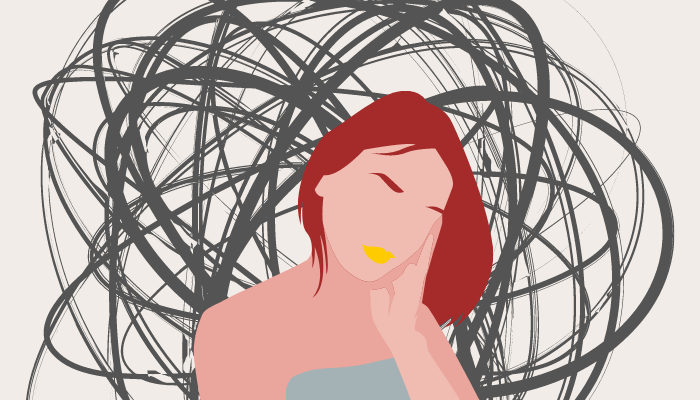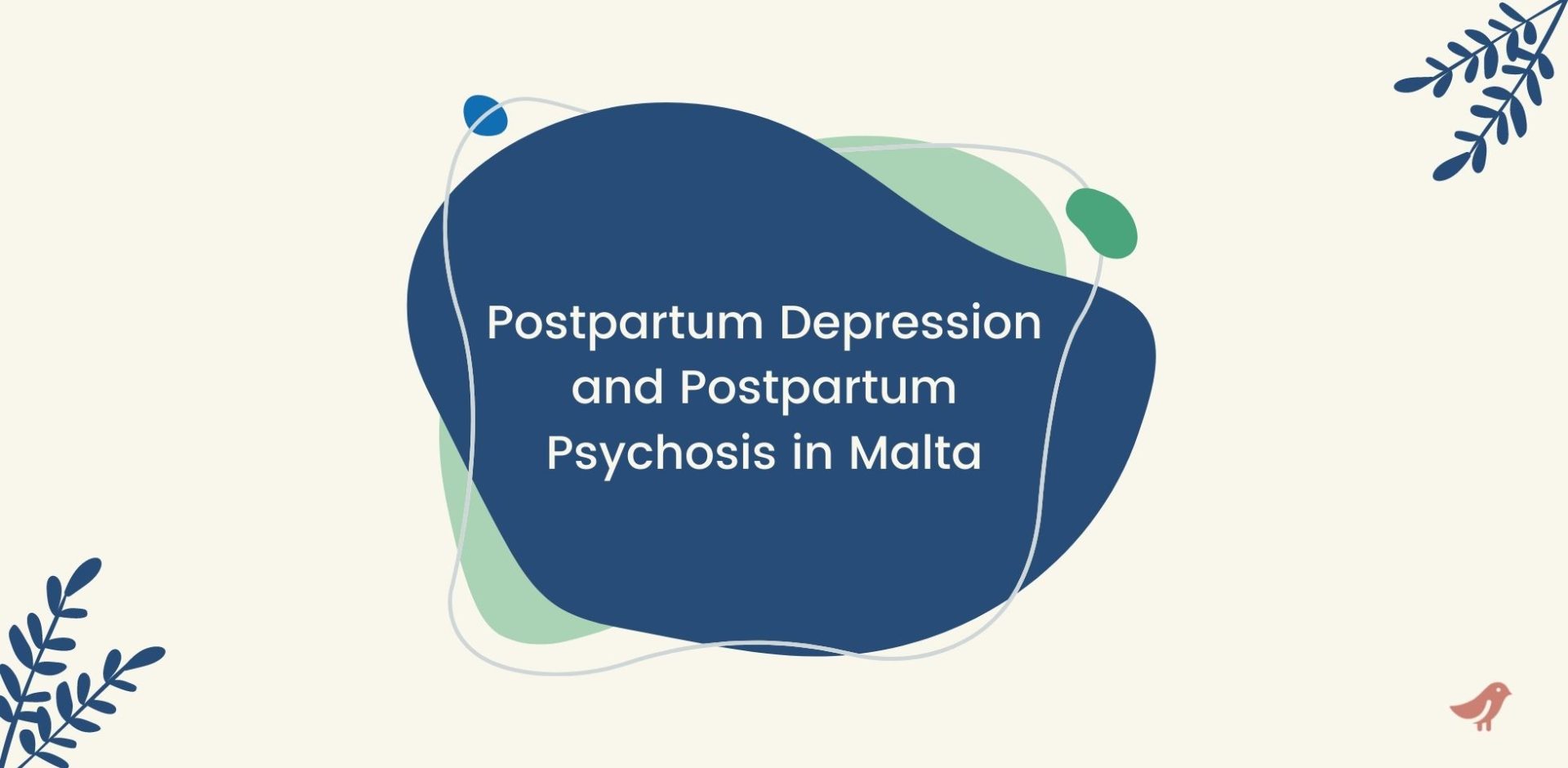New motherhood brings with it a mixed bag of emotions – elation, pride and love, but for many of us, also exhaustion and, possibly, unhappiness. While the baby blues are common in the first weeks post birth, when feelings of unhappiness turn into unabating sadness and loss of interest, the situation becomes worrying.
We spoke with Reproductive Psychiatrist Dr. Edith Agius who shared insight on postpartum depression and postpartum psychosis, including the causes, symptoms, and treatment options. Learn more about these postpartum psychiatric disorders and how to identify them below:
Does postpartum depression occur immediately after childbirth?
Postpartum depression typically emerges over the first two to three postpartum months but may occur at any point after delivery. Some women actually note the onset of milder depressive symptoms during pregnancy. Postpartum depression is clinically indistinguishable from depression occurring at other times during a woman’s life.
What are the symptoms of postpartum depression?
The symptoms of postpartum depression include:
- Depressed or sad mood
- Tearfulness
- Loss of interest in usual activities
- Feelings of guilt
- Feelings of worthlessness or incompetence
- Fatigue
- Sleep disturbance
- Change in appetite
- Poor concentration
- Suicidal thoughts
Significant anxiety symptoms may also occur. Generalised anxiety is common, but some women also develop panic attacks or hypochondriasis. Postpartum obsessive-compulsive disorder has also been reported, where women report disturbing and intrusive thoughts of harming their infant. Especially with milder cases, it may be difficult to detect postpartum depression because many of the symptoms used to diagnose depression (i.e. sleep and appetite disturbance, fatigue) also occur in postpartum women in the absence of depression. The Edinburgh Postnatal Depression Scale (EPDS) is a 10-item questionnaire that may be used to identify women who have postpartum depression.
What causes postpartum depression?
The postpartum period is characterized by a rapid shift in the hormonal environment. Within the first 48 hours after delivery, oestrogen and progesterone concentrations fall dramatically. As these gonadal steroids modulate neurotransmitter systems involved in the regulation of mood, many investigators have proposed a role for these hormonal shifts in the emergence of postpartum affective illness. While it appears that there is no consistent correlation between serum levels of oestrogen, progesterone, cortisol, or thyroid hormones and the occurrence of postpartum mood disturbance, some investigators hypothesise that there is a subgroup of women who are particularly sensitive to the hormonal changes that take place after delivery.

Other factors may play a role in the aetiology of postpartum depression. One of the most consistent findings is that among women who report marital dissatisfaction and/or inadequate social supports, postpartum depressive illness is more common. Several investigators have also demonstrated that stressful life events occurring either during pregnancy or near the time of delivery appear to increase the likelihood of postpartum depression.
While all of these factors may act together to cause postpartum depression, the emergence of this disorder probably reflects an underlying vulnerability to affective illness. Women with histories of major depression or bipolar disorder are more vulnerable to postpartum depression and women who develop postpartum depression will often go on to have recurrent episodes of depression unrelated to pregnancy or childbirth.
Am I at risk?
All women are vulnerable to postpartum depression, regardless of age, marital status, education level, or socioeconomic status. While it is impossible to predict who will develop postpartum depression, certain risk factors for postpartum depression have been identified, including:
- Previous episode of postpartum depression
- Depression during pregnancy
- History of depression or bipolar disorder
- Recent stressful life events
- Inadequate social supports
- Marital problems
What is postpartum psychosis?
Postpartum psychosis is the most severe form of postpartum psychiatric illness. It is a rare event that occurs in approximately 1 to 2 per 1,000 women after childbirth. Its presentation is often dramatic, with the onset of symptoms as early as the first 48 to 72 hours after delivery. The majority of women with puerperal psychosis develop symptoms within the first two postpartum weeks.

It appears that in most cases, postpartum psychosis represents an episode of bipolar illness. The earliest signs are restlessness, irritability, and insomnia. Women with this disorder exhibit a rapidly shifting depressed or elated mood, disorientation or confusion, and erratic or disorganized behaviour. Delusional beliefs are common and often centre on the infant. Auditory hallucinations that instruct the mother to harm herself or her infant may also occur. Risk for infanticide, as well as suicide, is significant in this population.
Is there treatment for postpartum disorders?
Postpartum depression presents along a continuum, and the type of treatment selected is based on the severity and type of symptoms present. However, before initiating psychiatric treatment, medical causes for mood disturbance (e.g. thyroid dysfunction, anaemia) must be excluded. Initial evaluation should include a thorough history, physical examination, and routine laboratory tests.
Non-pharmacological therapies are useful in the treatment of postpartum depression. In a randomised study it was demonstrated that short-term cognitive-behavioural therapy (CBT) was as effective as treatment with fluoxetine in women with postpartum depression. These non-pharmacological interventions may be particularly attractive to those patients who are reluctant to use psychotropic medications (e.g. women who are breast-feeding) or for patients with milder forms of depressive illness. Women with more severe postpartum depression may choose to receive pharmacological treatment, either in addition to or instead of these non-pharmacological therapies.
To date, only a few studies have systematically assessed the pharmacological treatment of postpartum depression. Conventional anti-depressant medications (fluoxetine, sertraline, fluvoxamine, and venlafaxine) have shown efficacy in the treatment of postpartum depression. In all of these studies, standard antidepressant doses were effective and well tolerated. The choice of an antidepressant should be guided by the patient’s prior response to antidepressant medication and a given medication’s side effect profile. Specific serotonin reuptake inhibitors (SSRIs) are ideal first-line agents, as they are anxiolytic, non-sedating, and well tolerated. Given the prevalence of anxiety symptoms in this population, adjunctive use of a benzodiazepine (e.g. clonazepam, lorazepam) may be very helpful.
Puerperal psychosis is considered a psychiatric emergency that typically requires inpatient treatment. Acute treatment with either typical or atypical anti-psychotic medications is indicated. Given the well-established relationship between puerperal psychosis and bipolar disorder, postpartum psychosis should be treated as an affective psychosis and a mood stabiliser is indicated. Electroconvulsive therapy (ECT) is well tolerated and rapidly effective for severe postpartum depression and psychosis.

Perinatal mental health issues arise in many new parents. Know that there is help available. You can find Mater Dei’s perinatal mental health leaflet here. You can also call them on 2545 7410 or 7970 1767.
Dr Edith Agius, graduated as a Doctor in Medicine & Surgery from the University of Malta in 2014. She is currently specialising in Psychiatry and is reading a Masters in Perinatal Mental Health with Sheffield Hallam University. Currently, she is working at the Mosta Community Mental Health Clinic and the Perinatal Mental Health Clinic at Mater Dei Hospital. Her main areas of interest are General Adult and Perinatal Psychiatry. She is a committee member and serves the PRO role in the Parent-Infant Mental Health Alliance NGO and founder of the Instagram page Reproductive Psychiatry.
Learn more about your mental health in the postpartum period in our Maternal Mental Health Series:
Maternal Mental Health: Where to Find Help in Malta
Common Perinatal Mental Health Issues and How to Identify Them



